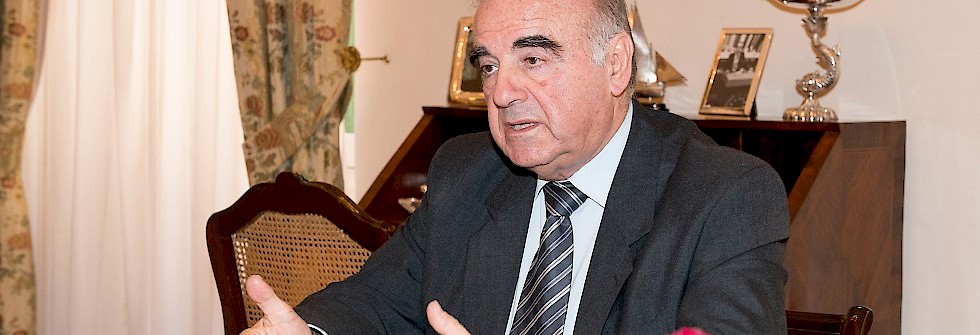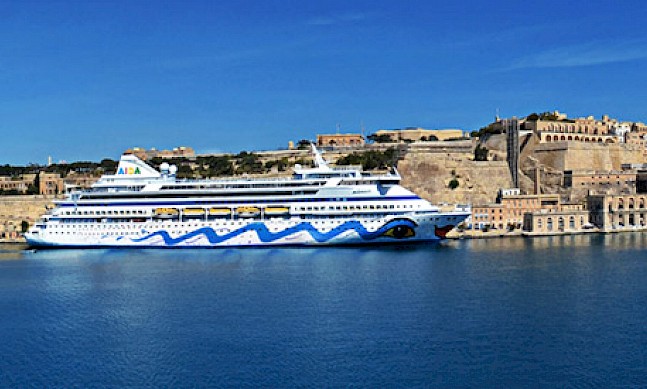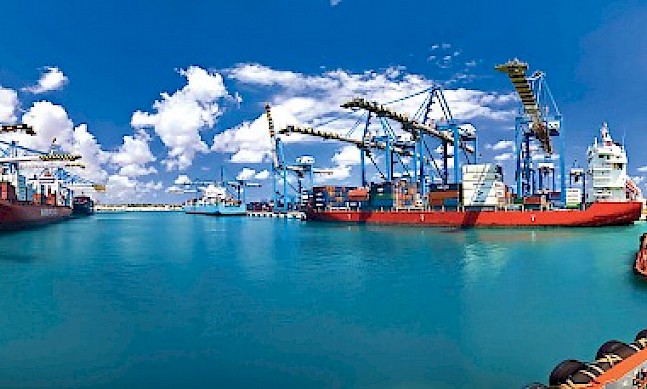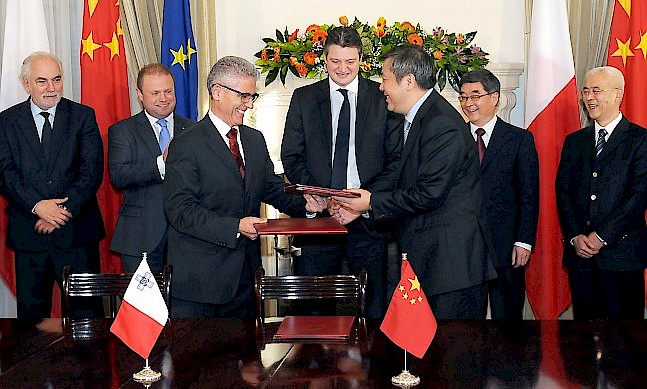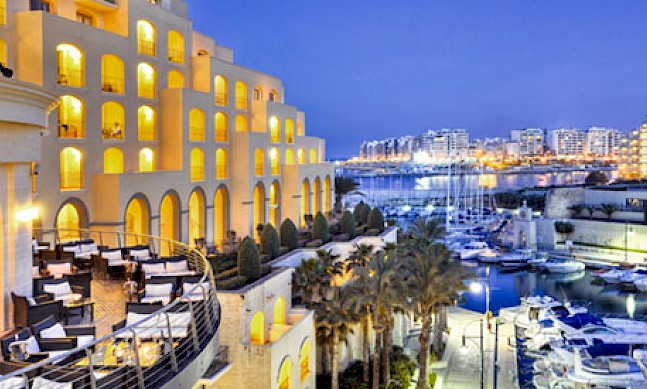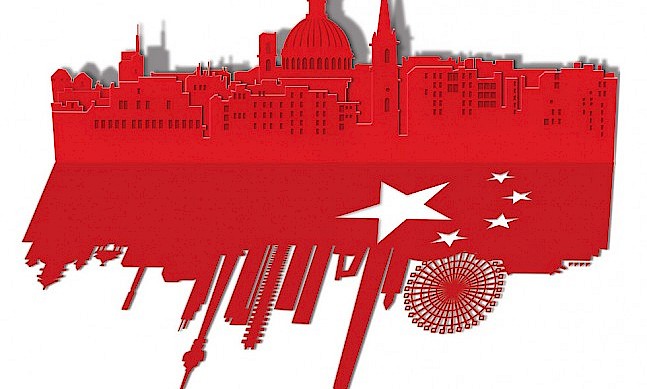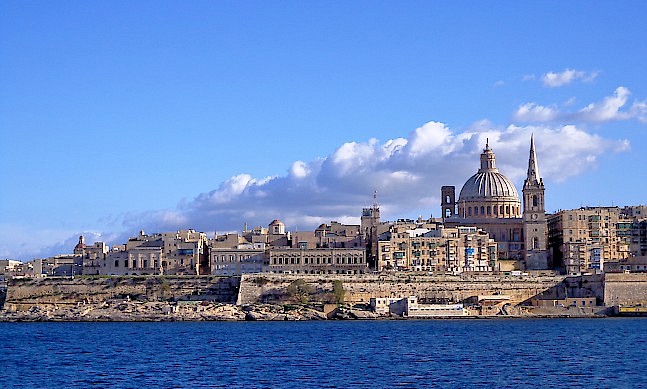A doctor by profession, George Vella’s political career spans five decades – he was elected as a member of the Maltese parliament in 1978 – and this is his second stint in the role of minister of foreign affairs. Renowned for his enthusiasm, knowledge and understanding of global politics, he is successfully charting Malta’s diplomatic path through a changing geopolitical landscape. He spoke to The Report Company about the challenges Malta faces as an island in the centre of an increasingly restive Mediterranean region, and his pride in his country’s flourishing relationship with China.
The Report Company: Which are the main challenges and your objectives as minister of foreign affairs in Malta?
George Vella: The challenges and the objectives result from the geographical position of Malta. We are in the middle of the Mediterranean and in the last few years we have been facing the problems that have arisen in this region especially as the ‘Arab Spring’ and the problems that followed after that. It is a very complex situation and our foreign policy at the moment is obviously qualified to a certain extent by what’s happening in the region.
Beyond that, we are also very much interested in our commitments as a European Union member country. We have to fully rise up to our obligations and our duties. As well as the southern Mediterranean neighbourhood, there is another neighbourhood to the European Union which is the Eastern Neighbourhood and there we’re talking about relationships with countries like Ukraine, Georgia, Moldova and Armenia and Azerbaijan; these are the countries beyond the EU’s borders which the EU is reaching out to because of evolving circumstances. We’re right in the middle of this process.
TRC: Because of its location, Malta risks being overwhelmed by refugees and migrants from current hotspots within the region. What is your assessment of the situation?
GV: It is a multi-faceted issue. The issue is primarily international but then there are the economic and demographic and social aspects of it. These people do not just come from nowhere. They come from somewhere and they are coming from countries where there is war, where there is intolerance, where there is no rule of law or where there is no respect for human rights. Mostly they are coming from the Horn of Africa and Sub-Saharan Africa.
Besides the genuine asylum seekers, there are people who are making loads of money in human trafficking, promising these people that they’re going to find heaven on earth in Europe. They take their money then leave them to their fate. Many of them try to cross over on boats that are not seaworthy and the number of deaths that we know of is already alarming, let alone those which are not registered, so it’s a big problem.
With us the problem with the European Union member states is that we have to see solidarity in practice. Not only is it a strain on our resources and manpower but the point is that when we end up with these irregular migrants on the island, these people because of the situation in their country do qualify for refugee status. Once they are qualified as a refugee, we are found to give them the opportunity to stay in the country. Now, with Malta’s size, Malta’s population and Malta’s resources, we cannot offer these people the opportunities that they actually left their country to look for. We are trying to impress on the other member states that we need some sort of proportional intra-community response.
“Wherever you go in China, when you mention Malta, it means something. This relationship is unique and we have always cherished it.”Post This
TRC: How would you appraise the current relationship between Malta and China?
GV: I cannot find a word which is more forceful than excellent. We were one of the first European countries to establish relations with China in 1972, and since then we have had relations in practically all aspects: political, economic, medical, education and cultural. There has been no single instance where there was a blip or a diminution of cooperation or mutual respect and mutual trust. This has been an ideal friendship in the sense that when one tries to visualise a relationship which is between the largest country in the world at 1.3 billion people and one of the smallest, and then to feel the warmth and the hospitality and the importance that they give to such a small country, it’s amazing. But besides that one can feel that it is sincere and it is honest, it’s a relationship which has given results to us. We’ve had major projects done by Chinese engineers and Chinese experts and we have quite a lot of trade between Malta and China. There is a diffuse knowledge of China and the Chinese and the Chinese way of life here in Malta because China has become one of our most important political and commercial partners. We look forward to increasing this relationship and making it even deeper.
Wherever you go in China, when you mention Malta, it means something. This relationship is unique and we have always cherished it. Apart from cherishing it now we want to make it deliver more and make it stronger. In September 2013 a very important meeting took place between our Prime Minister and the Chinese premier in Dalian. Apart from signing an agreement on cooperation between Enemalta and the China Power Investment Corporation, there was also an agreement on the suggestion of the Chinese premier that we should go into a medium-term cooperation plan. We’ve set a draft plan how we would like to our future relations develop.
We’ve also embarked on opening, with the agreement of the Chinese authorities, a consulate in Shanghai. We have also recently signed a cooperation agreement about the recognition of academic degrees. This is very important and it was a first for China.
The China Power Investment Corporation is not just a corporation which is cooperating with Enemalta; the idea is that from Malta this corporation will be able to service the region. They are also going to set up a photovoltaic panels industry. We are looking forward to having more cooperation in the energy sector and anything which can bring us closer together and help each other. We have even talked about the possibility of coming to an agreement on the issue of adoptions from China. We are doing what we can to try to increase trade between Malta and China; there is the Malta-Chinese Chamber of Commerce which helps to introduce new investors to the possibilities and opportunities in China.
“Now, with Malta’s size, Malta’s population and Malta’s resources, we cannot offer these people the opportunities that they actually left their country to look for. We are trying to impress on the other member states that we need some sort of proportional intra-community response.”Post This
TRC: How would you like Malta to be perceived internationally and particularly by the Chinese market?
GV: We’re doing all we can; when I took over this ministry the idea was to try and translate our ‘diplomacy’ into commercial and economic diplomacy; translating it into tangible investment opportunities in business and trade. We lay the ground. We are the facilitators and then there are the people from trade and industry who go in and try to maximise the political relationships.
I would like to see my country being perceived as an opportunity for investment. Malta is a very small place; we do not have our own natural resources but we rely on our resources which are the human resources and the services which we can offer. If we manage to convince the world outside that we are a credible business partner, they will see that we can offer genuine business opportunities in a professional, qualified environment in a country which is placed strategically in the middle of the Mediterranean. We can accommodate the north, the south, everybody. We can accommodate anybody.
We have tried to make Malta be seen as an efficient opportunity for business with a very good track record of achievements, especially in the new fields that we have ventured into after moving on from the primary industries and other industrial investment. Financial services, insurance, registration and e-gaming are the sectors which are now being promoted and they are flourishing well.
We are a country which is safe and follows British standards as far as finance is concerned. Our financial sector has been stable and has earned a lot of respect, even more so after the crisis of the Cypriot banks in 2013 when everybody thought that Malta banks would be follow. At that time, some critics wrongly said that ours would be the next bank collapse to watch. That worried us a lot, because perception is the most important thing but because of the stability of the financial sector we didn’t waver. When they saw that there was no real change in our banking sector and financial institutions, people could then see that Malta was stable. Malta is a tourist paradise but not a fiscal paradise. This is how we would like to be seen; as an opportunity for investment that will bring trade and business. We are promoting ourselves as a stable, safe country with good rule of law and good standards. We are looking forward to opening up as much as possible to the whole world.
